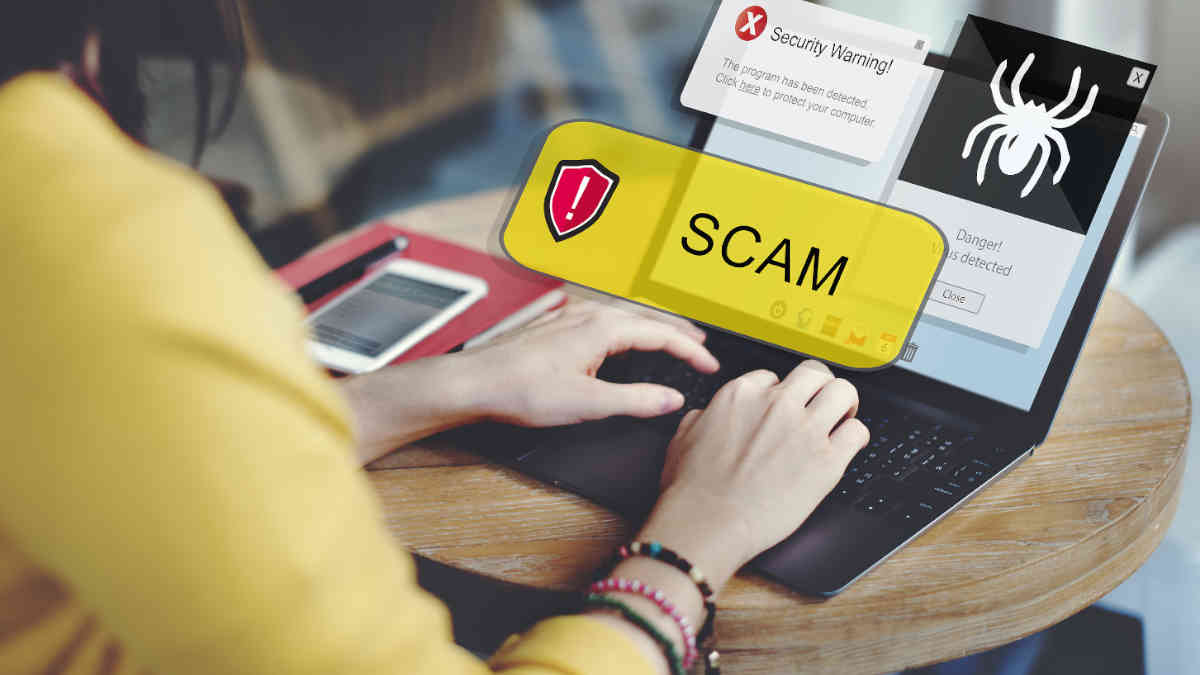Our community is going through so much right now because of the Coronavirus Pandemic. We are learning to deal with social distancing, virtual learning, and working from home. All of this “new normal” involves the use of computers and the internet which has also become even more attractive for hackers and scammers. These nefarious individuals are also on their computers and internet working hard to target anyone and everyone, world-wide, to accept their fraud scheme. It is important to know the latest threats and be aware of the steps you can take to protect yourself against the latest fraud scams.
Banking & Fraud Schemes
Keeping your assets and personal information secure from fraud schemes is important to everyone including the banks. Fraudsters are always looking to try to get straight to the cash. Phone calls are a favorite tool. If you receive a phone call from the “bank,” you can bet it is probably not your local Whitney or Chase branch, especially if they are asking to confirm some of your personal information. The best thing to do in this case is to hang up and call your bank directly to find out if it is fraud. A bank will never contact you and ask you for your social security number, PIN number or other banking credentials…they already have those. Some fraud scammers will do the same thing with texting and emails. Never, Ever click on any links or download any attachments in text messages or emails. Hackers and Scammers love to create websites, apps, and emails that look like the real bank. These online “resources” are designed to infect your device with malware with the intent to steal online banking information and credit card information. Never give up you User ID or Password to unknown sources even if they say their are providing “financial relief” as part of COVID-19 unemployment help. It is a fraud scheme.
FBI Tips During The Pandemic
According to the FBI website, the COVID-19 crisis has been a fraud scheme creation boon for criminals and con artists. Because school, work and even social life has moved online, criminals are clandestinely following in the online shadows targeting kids and personal finances with elaborate fraud schemes.
The FBI and our law enforcement partner agencies are very much open for business, and we’ve been very successful in finding and prosecuting COVID-related cases, ~ FBI Financial Crimes Section Chief Steven Merrill, FBI.gov.
Crimes Against Children
Criminals are using virtual meeting platforms like Zoom to target children. They are using these platforms to broadcast child sexual abuse materials to unwitting participants of schools, churches and other online gatherings. In the last 3 months, the FBI has seen more than 300 of these incidents according to Leonard Carollo, chief of the FBI’s Crimes Against Children and Human Trafficking Unit (see more here). The FBI is also concerned about the rise of Sextortion. According to the FBI, “Sextortion begins when a predator reaches out to a young person over a game, app, or social media account. Through deception, manipulation, money and gifts, or threats, the predator convinces the young person to produce an explicit video or image. When the young person starts to resist requests to make more images, the criminal will use threats of harm or exposure of the early images to pressure the child to continue producing content.” ~ FBI.gov – https://www.fbi.gov/news/stories/stop-sextortion-youth-face-risk-online-090319 Parents need to take the time to talk with their children, frankly, about these online predators to help avoid these dangers.
Financial Crimes & Scams
The creative fraud schemes have really taken on a new look by scammers because of the pandemic. Scammers are trying to get the loan money from the Paycheck Protection Program by using stolen identities to file for unemployment or posing as a business. The criminals sometimes use money mules to hide their crimes and launder their fraud money. A money mule is a person who transfers illegally acquired money for another person. The money mules may or may not even know they are playing a role in the crime. This particular fraud scheme can be done when people transfer money as a down payment on a house. Unfortunately, when they transferred the money to the “title company,” they are actually sending their money to the wrong account due to a compromised email fraud scheme.
Fraudulent Antibody Testing for Covid-19
Some scammers are now entering the marketing fraud scheme business. They are advertising unapproved but free COVID-19 antibody tests with the hopes of obtaining an individuals’ personal information including health insurance to be used for future identity theft and fraud scams. The FBI warns against these free tests offered by marketing solicitors contacting you in person, phone or email. Check the FDA’s website (FDA.gov) for approved tests, consult with your physician before using any at home tests, never share your personal information.
If you think you are the victim of a fraud scheme, contact the National Center Fraud Hotline at 866-720-5721 or justice.gov/disastercomplaintform.
